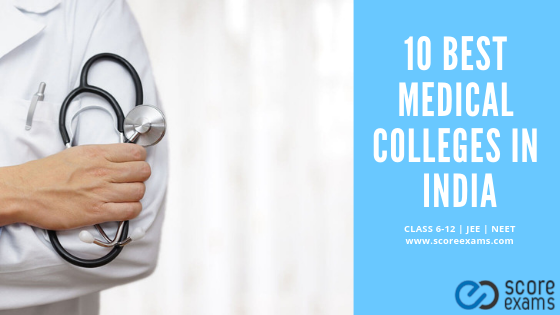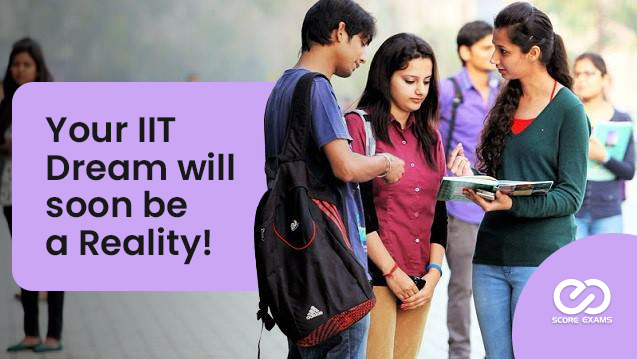
The Ten Best Medical Colleges in India
The medical field attracts a good number of students in India. It is one of the most sought after professions around the world. It is respected and seen as a prestigious profession in our society.
The medical field in India has been growing academically since the first medical college was built in 1835. Some of the best medical colleges in India were established during 20th century and post- independence private medical colleges started flourishing.
The Medical Council of India was formed to set standards of medication education along with various other objectives to ensure the quality of medical colleges. Soon competitive exams like AIIMS, NEET, DPMT, JIPMER became a part of the admissions process and the field got more competitive than ever. As of 2017, there are 471 colleges approved by the MCI that offer MBBS.
Here are top 10 medical colleges in India:
- All India Institute of Medical Sciences (AIIMS), Delhi: AIIMS was founded by Rajkumari Amrit Kaur, the first Health Minister of India and was established in the year 1956. Teaching and research are conducted in 42 different disciplines of medicine with comprehensive, state-of-art facilities accessible to students, professors, and doctors. It has been ranked No. 1 repeatedly by multiple publications and organisations over the years. It is run autonomously under Ministry of Health and Family Welfare and has several achievements under its wings.
- Christian Medical College (CMC), Vellore: Founded in 1900 by Ida Scudder, CMC is one of the few private colleges in the country that consistently retains its position in top 10. It is a century-old Christian, not-for-profit institution run by an administrative council with members of the Church from across the country. Some of the significant achievements by CMC Hospital include performing the first reconstructive surgery for leprosy in the world, starting the first nursing school in India, and performing the first even successful open heart surgery in India. The college has more than 175 medical courses and around 1,900 teaching and technical staff.
- Maulana Azad Medical College (MAMC), New Delhi:Named after the freedom fighter, MAMC is a government college affiliated with University of Delhi. Established in 1958, it also offers degrees in nursing and pharmacy. The campus also houses other institutes like Lok Nayak Hospital, Maulana Institute of Dental Sciences, Guru Nanak Eye Centre, and GB Pant Institute of Postgraduate Medical Education and Research. The students are trained by 426 faculty members and 810 resident doctors.
- Armed Forces Medical College (AFMC), Pune: AFMC, first medical college to be set up by Armed Forces in Asia, was established in 1948. It is affiliated to Maharashtra University of Health and Sciences. This college provides a pool of specialists and super specialists to Armed Forces. It is the only college in India where the expenses?uniform, books, tuition, and lodging?to the medical cadets are paid by the Ministry of Defense. AFMC graduates not only service in India but also for UN peacekeeping missions abroad.
- Kasturba Medical College (KMC), Manipal: KMC is the first self-financing, private medical college in India. It was founded in 1953 by Dr T.M.A. Pai, who was responsible many of the infrastructural development of modern Manipal. The MBBS program in this college is recognised by various medical councils around the world and sees students from as many as 44 countries joining this program.
- Lady Hardinge Medical College (LMHC), New Delhi: LHMC, opened in the year 1916, was founded by Lady Hardinge in order to encourage more women to pursue medicine. For a long time post-graduation courses were provided only for women, since 1970 both men and women are admitted. It has improved leaps from just admitting 16 students in 1916 to admitting 200 students today. LMHC has two teaching hospitals? Smt. Sucheta Kriplani Hospital and Kalawati Saran Child Hospital. The college library of LMCH is one of the oldest medical libraries in India. The college is affiliated to University of Delhi and is also a surveillance centre for AIDS.
- Grant Medical College (GMC), Mumbai: GMC was founded in the year 1845. It is one of the oldest teaching medical colleges in Asia. With the long history and pioneering teaching methods, GMC is one of the most prestigious government medical colleges in India. The clinical affiliate of this college is Sir JJ Group of Hospitals which is a group of four hospitals. GMC is also one of the few Indian medical colleges recognised by Medical Council of Singapore. The college has more than 25 departments and has the largest campus amongst all the medical colleges in Mumbai.
- University College of Medical Sciences (UCMS) & GTB Hospital, New Delhi: UCMS is a constituent college of University of Delhi and was founded in the year 1971. In spite of the presence of colleges like LHMC and MAMC, Health Ministry felt that many students were denied the opportunity to pursue medicine. Hence, the college was started in the north campus of the University of Delhi and grew to what it is today. It has 21 departments and offers paramedical and medical courses. It is also one of the network centres for National Brain Research Centre and one of the three trauma centres in Delhi.
- King George?s Medical University, Lucknow: This college was officially opened in the year 1912. The idea to build this college came into fruition when George V, then Prince of Wales, wanted to commemorate his visit to India in 1905. Lack of funds was one of the reasons why it took so long to finish building the college sooner. It is one of the top government medical colleges in India. With just two departments in the beginning, over the span of 100 years, this college has grown immensely. Today it has more than 18 departments.
- Sri Ramachandra Medical College (SRU), Chennai: Established in 1985, SRU is a private medical college having eight constituent colleges and 45 departments. Over the years SRU has achieved several milestones. The inter-institutional alliance with Harvard Medical College, the inauguration of the centre for advanced research on air quality, climate, and health, and regular introduction of new courses and departments are some of the most notable milestones achieved by SRU.
All the above colleges have different entrance examinations, cut off marks, and admission process. Ensure that you choose them right. Be clear in what you are looking for, research, and choose accordingly.
All the best!Interesting facts about IITs
Previous PostSome Shortcomings of Online Education
Next Post





